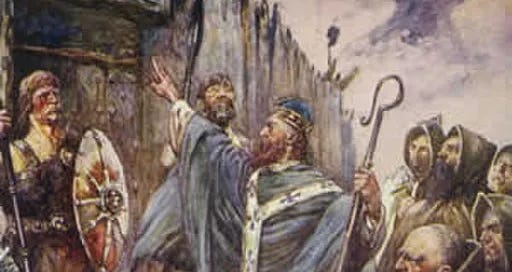The Enduring Legacy of St. Columba on Scottish Noble Lineages
Scotland's rich history is intricately woven with tales of saints and kings, where mythology often intertwines with the threads of factual narratives to paint a vibrant tableau of the nation's past. Among the luminaries of Scotland’s ecclesiastical history, St. Columba stands out as a figure of profound influence, not just in the spiritual domain but also in the shaping of noble Scottish lineages.
Who was St. Columba?
St. Columba, also known as Colum Cille (meaning "Dove of the Church"), was an Irish abbot and missionary credited with spreading Christianity in present-day Scotland. He was born in 521 AD into a noble family connected to the kings of Ireland; thus, he had both the pedigree and the education to make a significant impact. Around 563 AD, Columba, accompanied by a small band of followers, traveled across the Irish Sea and founded a monastery on the island of Iona, which would become a pivotal center for religious and political activities in medieval Scotland.
Keep reading with a 7-day free trial
Subscribe to Tales of Forgotten Scottish History to keep reading this post and get 7 days of free access to the full post archives.




